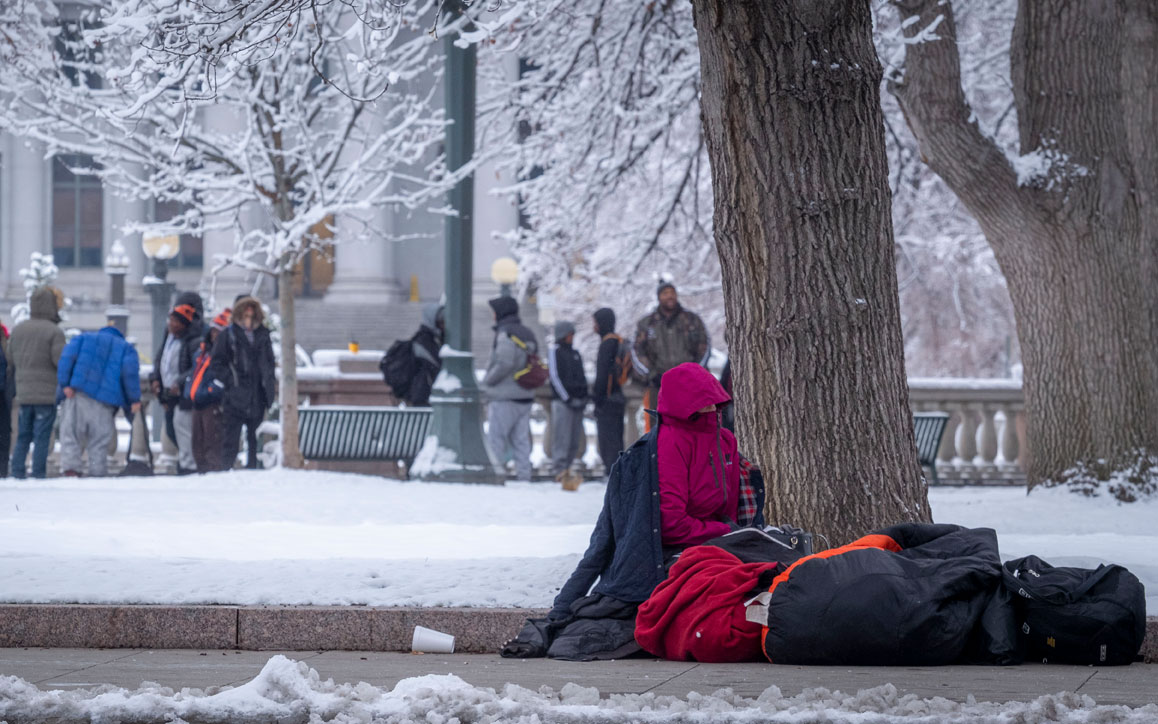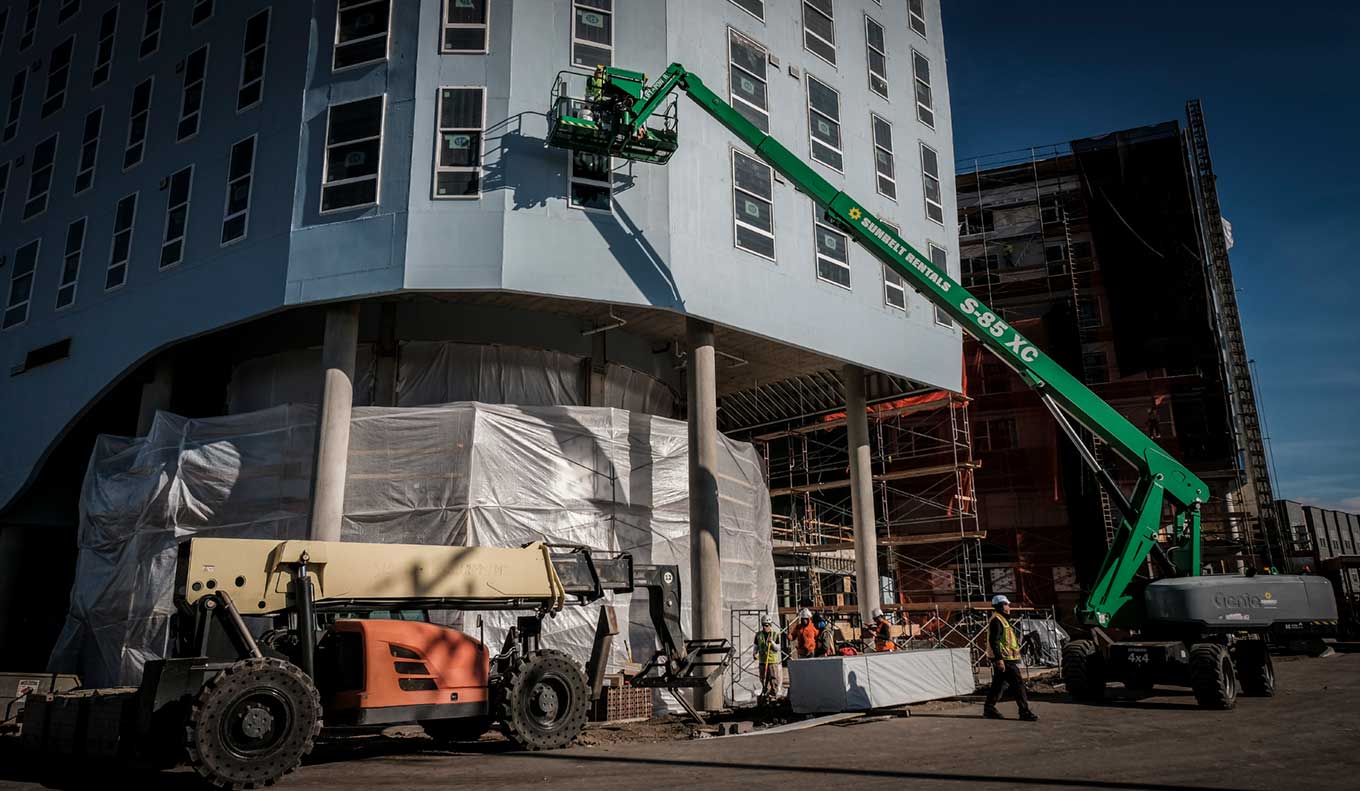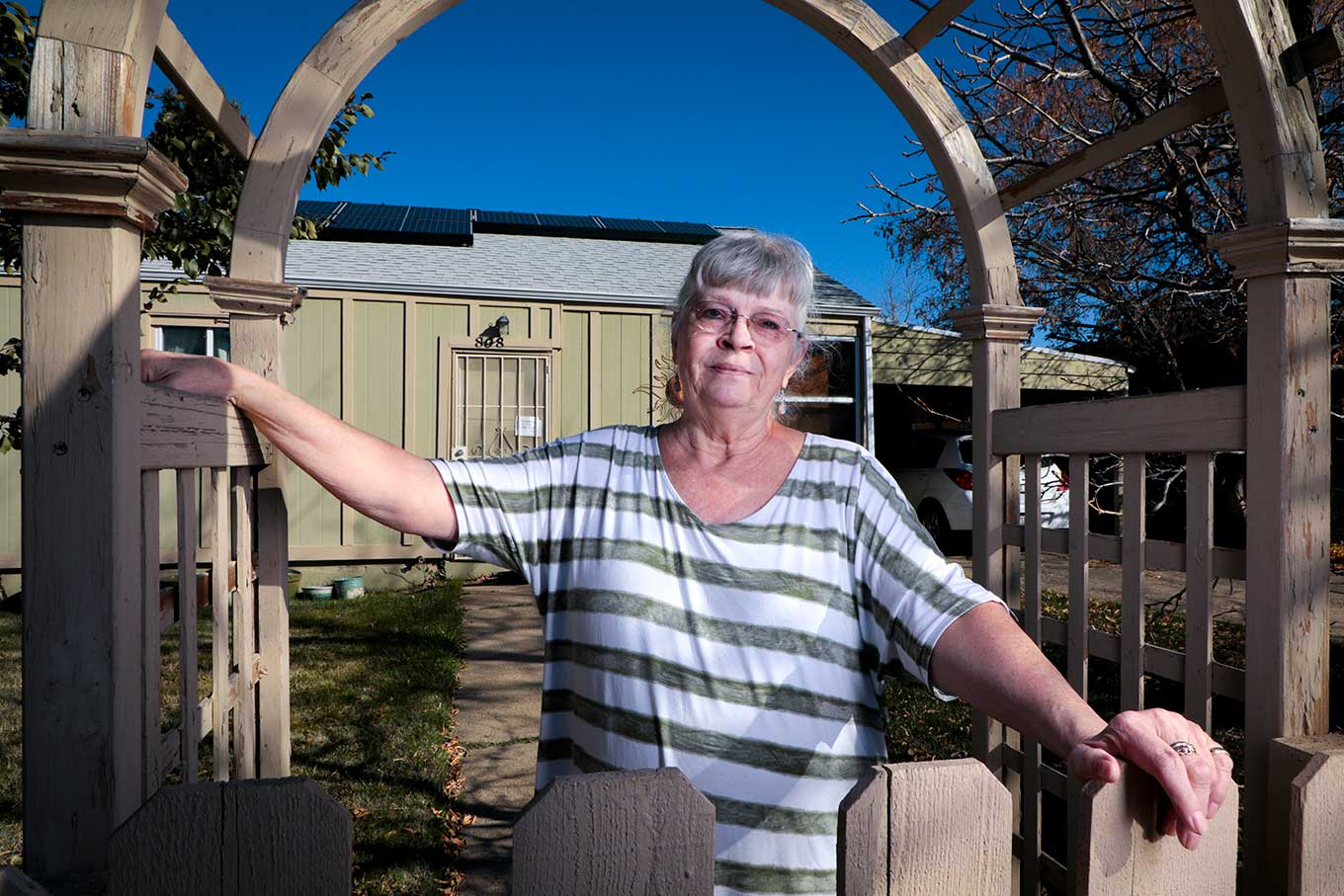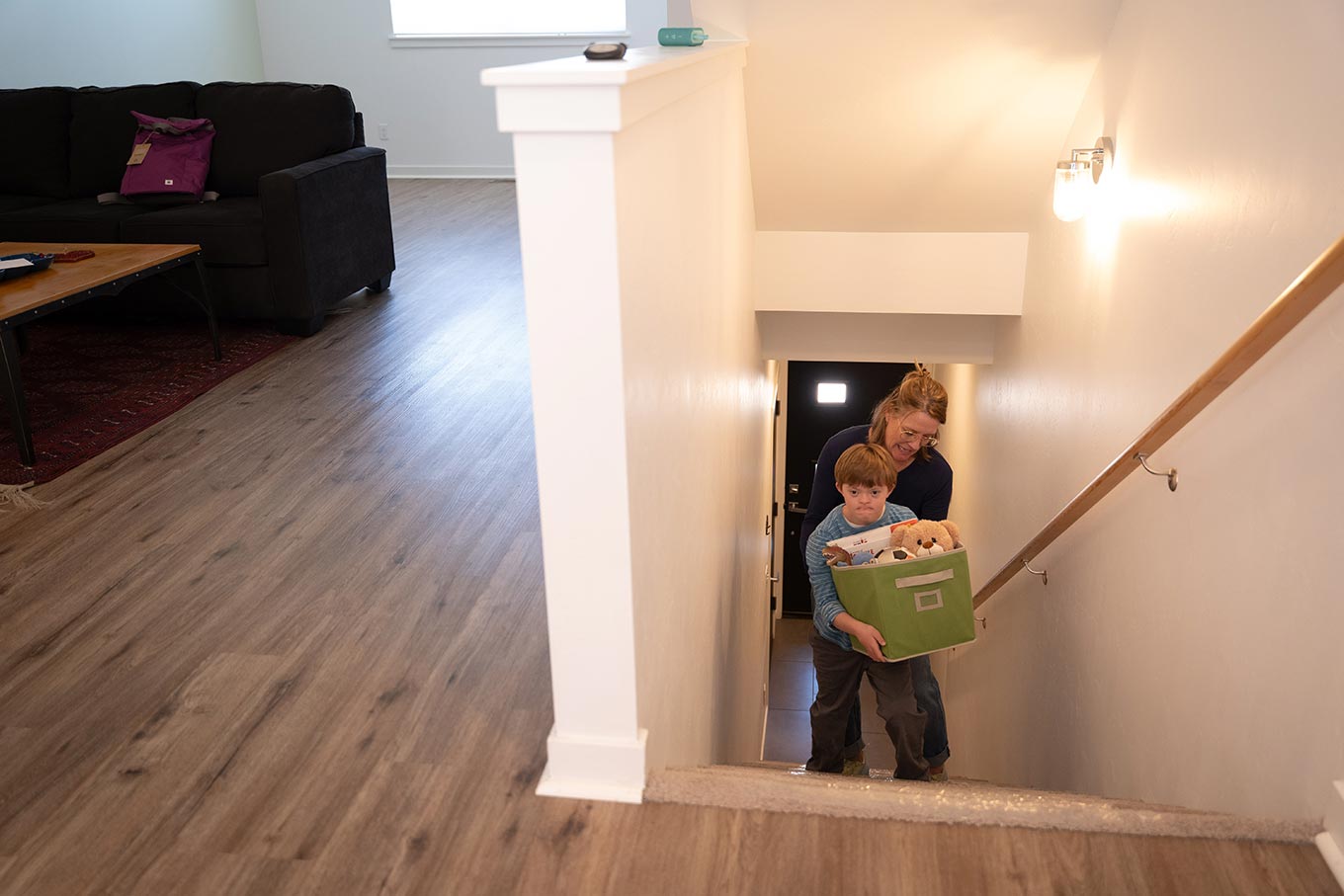Denver has effectively shut down in order to stem the spread of COVID-19. As of March 20, more than 200 people in the state have tested positive for the virus, with dozens of confirmed cases in Denver County. General national guidelines for reducing risk include directives like frequently washing hands with soap and water, and maintaining a social distance of six feet from others.
For thousands of people who are experiencing homelessness at any given time in metro Denver, these recommendations are nearly impossible to follow.
“It’s really hard when everybody is being told to go home and isolate and we have more than 5,000 people who can’t do that,” said Cathy Alderman, vice president of communications and public policy at Colorado Coalition for the Homeless (CCH). “There are a lot of conversations taking place, but unfortunately not a ton of action yet… We are starting to feel a little bit anxious about getting some of these things into action.”
CCH, like other local shelters and service providers, has been forced to consolidate its programs and plan for staffing shortages in order to continue to adequately serve its community. For now, its Stout Street Health Center is operating on normal business hours, but two other clinics are currently closed; intakes and placements for housing programs are continuing.
The Denver Rescue Mission, which had 794 male guests at its shelters on the night of March 15, has sent home (with pay) workers over 60 years old or who have respiratory or other medical issues. As a result, the nonprofit has temporarily closed its Holly Center Shelter and relocated the 100 or so men who were there to its downtown shelter; it has also paused non-core programming, such as family refugee services and the Ministry Outreach Center.
Urban Peak is operating normally right now but has a plan in place to suspend certain programming as needed in order to focus on its overnight shelter, drop-in center and three apartment complexes. Chris Callanan, executive assistant to Urban Peak’s CEO Christina Carlson, said the organization is working to clean any vacant units for possible use in a quarantine situation.
“At the core of our response to the COVID-19 crisis is protecting our youth and our staff and making sure we can continue to serve the population,” Callanan said. “The homeless population is a very vulnerable population that can’t quarantine or isolate like the housed community can.”
All of these providers have noticed clients are experiencing heightened anxiety, concerned about whether staying at a shelter is the safest option, if they’ll be split up by police if they choose to sleep outside with people they know, and if any COVID-19-like symptoms are the virus or the result of already present medical conditions.
“They’re worried,” Denver Rescue Mission President and CEO Brad Meuli said. “The whole rest of the world is socially distancing and they’re not able to do that. [On Monday, March 16], we were slammed with the number of people that were coming for meals.”
“We’ve definitely seen an increase in the general anxiety around people we serve,” agreed Callanan. “They have to congregate in spaces in order to receive services. In order to get a meal or take a shower or get your laundry done, you have to come into a space where it’s very hard to maintain social distancing.”
Still, providers remain confident that the city will come through with viable solutions, even if the process has been slow.
“Obviously, we’re feeling an incredible sense of urgency because we are face-to-face with clients every day. We’re certainly elevating that urgency and raising it, but getting resources deployed, buying buildings, and finding facilities takes time,” Alderman said. “It’s a real concern for us not to be able to provide good prevention strategies for those who are unhoused… Even if we can test [people] or refer them out for testing, if they need to be isolated, we don’t have a place to help them locate to.”
Venues for quarantine are providers’ most urgent plea. In a press conference on Monday, Mayor Michael Hancock said his team is “in the midst of negotiating with several area hotels to secure rooms” for such a purpose and should have more information to share in the coming days. “The city is working on multiple options to ensure that everyone has some place safe and clean to go if they need it,” he said.
As of March 17, that had translated to six motel rooms where people can be isolated, according to advocacy groups, though the mayor noted city officials were looking at existing real estate inventory and other venues in order to provide adequate “supplemental shelter and activated respite care.” Callanan said the plan is to scale the current availability “by hundreds of units.”
On March 15, Colorado confirmed its first positive COVID-19 case in a person experiencing homelessness, according to a state health official who didn’t wish to be named because they weren’t authorized to disclose the information.
Currently, clients who may have symptoms are being referred to Denver Health or CCH’s downtown clinic, which has tested approximately 40 people, per Alderman. None have tested positive yet, though most of the test results are still pending.
During Monday’s press conference, Mayor Hancock also announced sheriff’s deputies would be redeployed away from evictions, giving those experiencing housing instability some breathing room in a time of crisis. Britta Fisher, the city’s chief housing officer, noted there is nearly $2 million in resources available through Denver’s Temporary Rental and Utility Assistance program. And major utility providers in the state have vowed that necessities such as electricity, natural gas, water and internet will not be shut off for the foreseeable future.
The mayor also declared that all restaurants and bars would be closed to on-site seating; mass gatherings of more than 50 people are banned (on Thursday, March 19, the Colorado Department of Public Health & Environment implemented a statewide ban on gatherings of more than 10 people); and the city will increase social distancing in jails and stop booking specific low-level, nonviolent arrestees.
“These are steps we must take to do our part to reduce people’s exposure to this virus,” Hancock said. “With these increased measures, our primary focus remains on supporting our vulnerable populations who will be most affected by this, and the service providers who are working overtime to help them right now.”
To that end, public handwashing stations have been installed throughout the city and maps have been distributed so people know where they’re located. Wellness Winnie—a mobile resource unit—is continuing to distribute supplies throughout Denver as well. And Denver Public Schools students are able to access free grab-and-go breakfasts, lunches, and dinners at least through April 17. Pick-up sites and details are available on the DPS website.
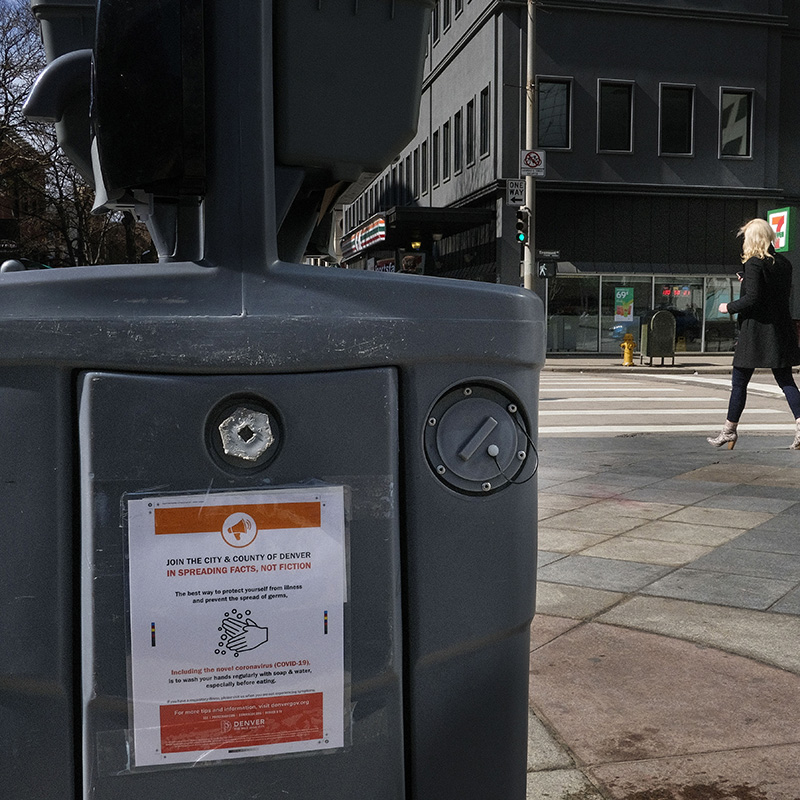
A portable hand-washing station in downtown Denver on March 17, 2020.
Day shelter or drop-in space remains limited, a resource the city has been struggling to provide since well before the pandemic reached Colorado. With all Denver Public Library locations temporarily closed, there is one less safe space for unhoused people to spend time. And on March 19, the City of Denver’s human services agency also closed all of its in-person facilities and recalled its outreach workers, though it left shelters open.
Conversations on expanding these offerings are ongoing, with daily, hourlong calls taking place between the Denver Homeless Leadership Council and city officials. They all recognize more is needed.
“At the end of the day, it comes down to individuals who have resources, putting them forward,” Fisher said. “I would also ask for those who have vacant apartment buildings, vacant motels, vacant hotels, vacant dorms—if there’s an opportunity that we can get that activated, please email [email protected].”
Service providers are in desperate need of both volunteers and supplies and have put in requests directly with the city. People who are young, healthy and showing no signs of the virus are encouraged to volunteer with nonprofits impacted by COVID-19; a full list of opportunities can be found on the Mile High United Way website.
The nonprofit is also maintaining a list of urgently needed supplies with drop-off information. (The Denver Rescue Mission currently has about a week’s supply of toilet paper on hand, for example, and could use more immediately; CCH has a wish list of supplies that can be ordered online.) Financial donations are also welcome.
“In these times of trouble,” Meuli said, “I would ask the community to continue to think of the poor and vulnerable people in our community.”
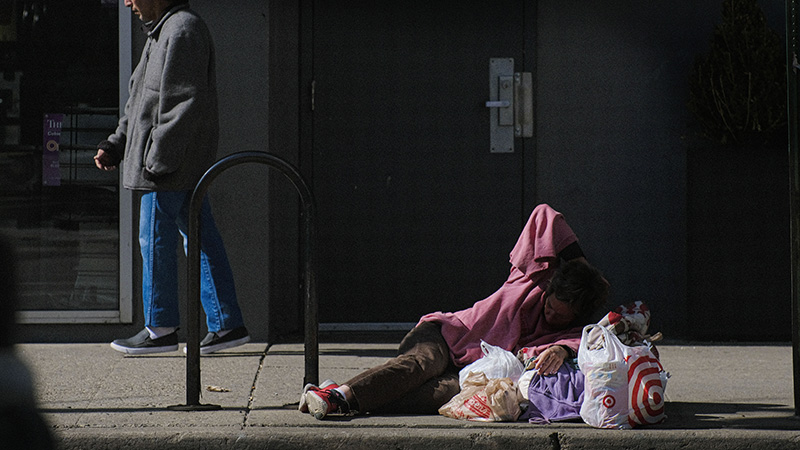
A woman sleeps on the sideawalk in downtown Denver on Tuesday, March 17, 2020 amid the novel coronavirus pandemic.
